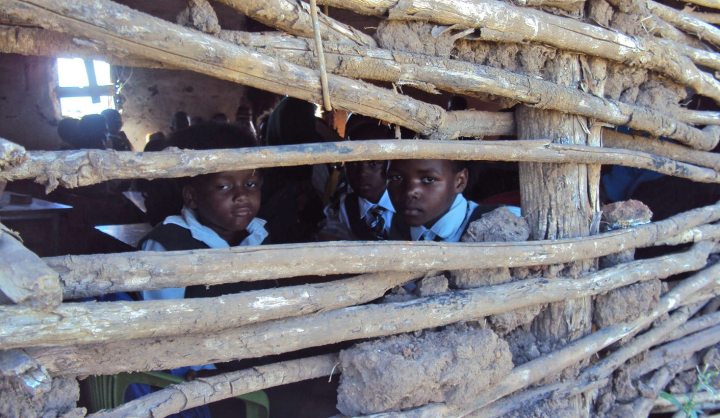South Africa
Op-Ed: Long walk to education

Ambition without education is like a boat on dry land. Many young learners in Nqutu, KwaZulu Natal know this well. To make sure they realise their dreams every day, they walk for hours to receive an education that may help them have a brighter future. By SANDILE NDLOVU for GROUNDUP.
(All photos by Equal Education. Schools featured on the photos are from Eastern Cape)
Sizwe wakes up at 4am every day to get ready to go school. He baths, get dressed, helps his siblings get ready, eats and at 6am leaves home for school.

When he leaves for school in winter it is cold and dark. He is accompanied by some of his friends on the two-hour walk to school.
This has been his routine for the past four years. He never makes the mistake of being absent from school. Although he’s used to it, he is glad that this will be his last year.

Sizwe had to choose which high school to go attend after passing grade 7: Dumizulu or Mangaliso high schools, but both are four-hour round-trip walks. This is the reality of many other learners in this area.
In summer, though, it’s better. It is warm and the sun rises early. Even with the many problems of staying in a village and going to a rural school, you cannot help but fall in love with Nqutu.
The reality for these learners, though, is that a two-hour-walk to school does not give them a chance to perform optimally. They still may be late and there will be a teacher waiting at the gate to punish them with a stick or forcing them to do frog jumps or push-ups. By the time they go to class these learners are so exhausted the teacher standing in front of the class is just a bad, angry mime artist. The day cannot be productive.

The chores don’t end after the long walk home, either. These learners do not have the luxury of helpers or five pairs of shirts and pants. Upon getting home they have to wash their uniforms, collect and chop wood, and go and herd the cattle that has been wondering all day in fields. Finally, by 8pm they get a chance to rest. There is little time or energy left for studies.
Where I come from learners are continuously faced with a stark choice: staying in school or quitting. So many obstacles increase the chances of failure.
Extra classes help, but that means staying a bit longer at school, leaving the school at 4 or 5pm. For female learners this increases the chances of being raped. Learners scatter all over to go to their homes. Some do not have anyone to go home with. There are no streetlights or security guards, and there is certainly no car to pick you up at the gate from school.

Many girls in grade 12 end up dropping out because they are falling behind in school and missing the extra classes. In one of the schools in which I organise, the matric class merely has 21 learners. Yet in grade 8 there are over 135 learners. The remainder have all dropped out between grade 8 and grade 12. The dropout rate may be attributed to many things but one reason is that many learners are simply tired of walking.
The struggle for equal education is one the whole country must take seriously. It’s the only way we can build a skilled nation. It’s the only way young people can realise their dreams. It’s is not fair that in 2014 learners must walk two hours to get their education when others have the privilege of crossing the road and arriving at school. The learners in my village may never break the cycle of poverty because they shall have never been given the chance to receive a decent education.

Government needs to take the education of learners in rural areas seriously. This means making sure learners’ safety is prioritised by making sure there is more patrolling on the routes learners use. Schools must also be built with the intention of reducing commuting times. And the long-term goal must be to provide reliable transport for learners to and from school. DM
Sandile Ndlovu is an Equal Education organiser in KwaZulu Natal. This feature was first published at www.groundup.org.za


















 Become an Insider
Become an Insider